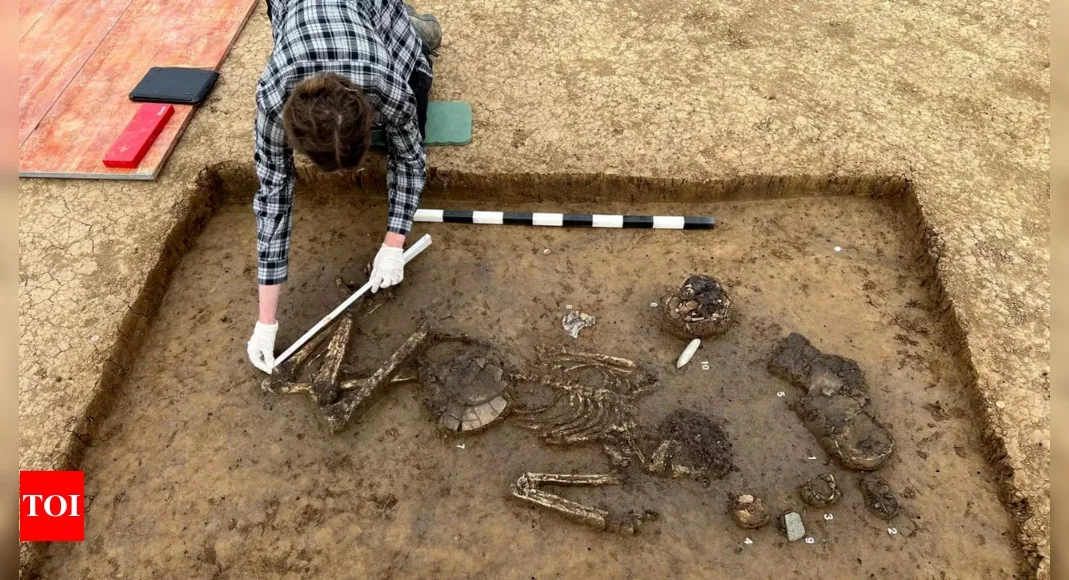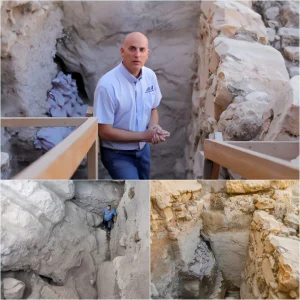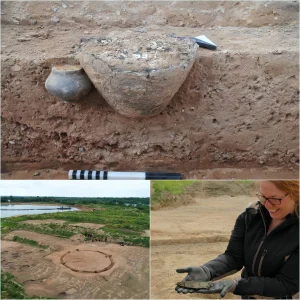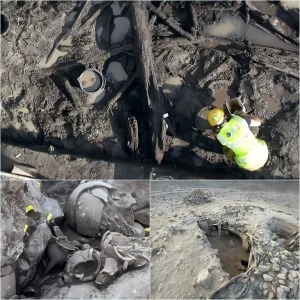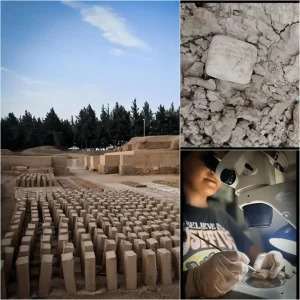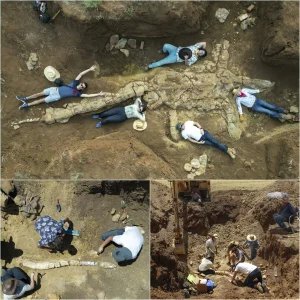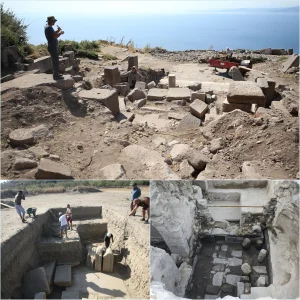Archaeologists in Eichendorf, Germany, have uncovered a significant discovery—a 6,800-year-old skeleton accompanied by an assortment of grave goods, indicating the individual held a prominent position in their community. Named the “Exinger,” the skeleton was found in the Exing district of Eichendorf during routine archaeological surveys preceding a construction project.
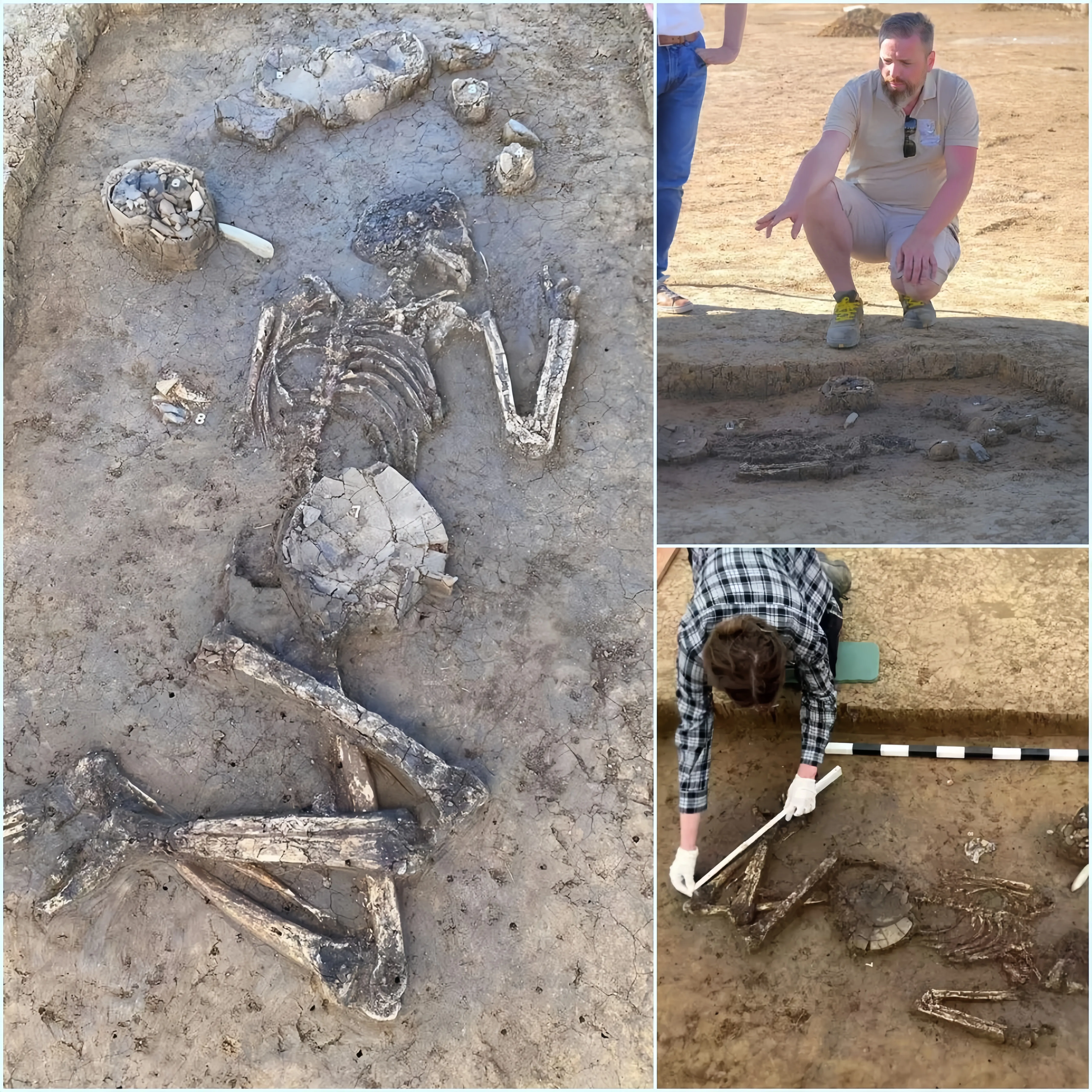
Florian Eibl, the district archaeologist, announced the find in April 2024. The excavation revealed a grave filled with artifacts such as pottery, stone tools, and a unique halved boar’s tooth, which adorned a small bag likely containing flint and pyrite for fire-making. These items suggest the individual’s high status, possibly as a village leader or chieftain, akin to a modern-day mayor.
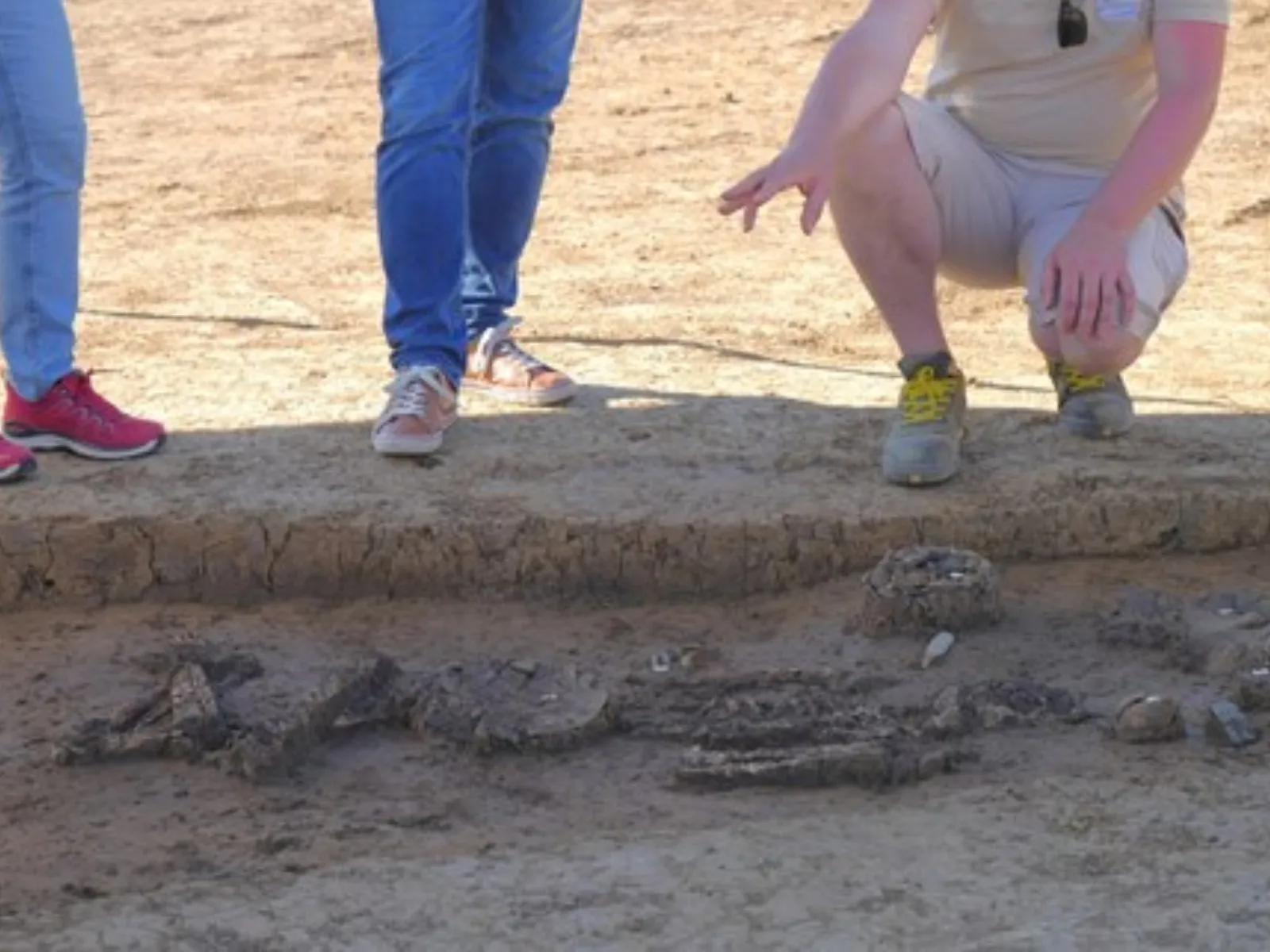
Among the grave goods were a personal drinking vessel placed near the skeleton’s face, several stone blades arranged around the body, and a bowl of graphite, used for ceremonial purposes or as a dye during burial rituals. These artifacts highlight the individual’s esteemed role and respect within Neolithic society, providing insights into early governance structures and cultural practices in ancient Europe.
